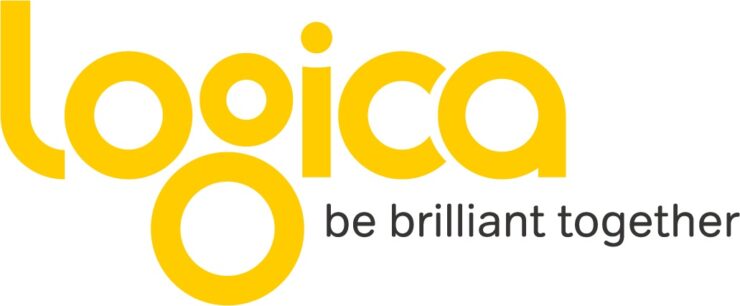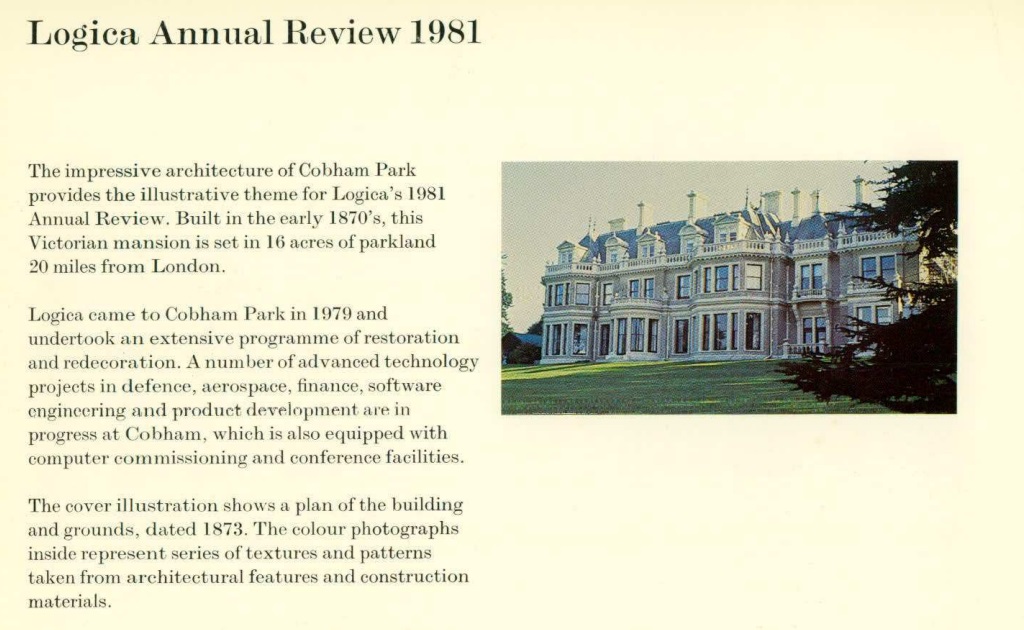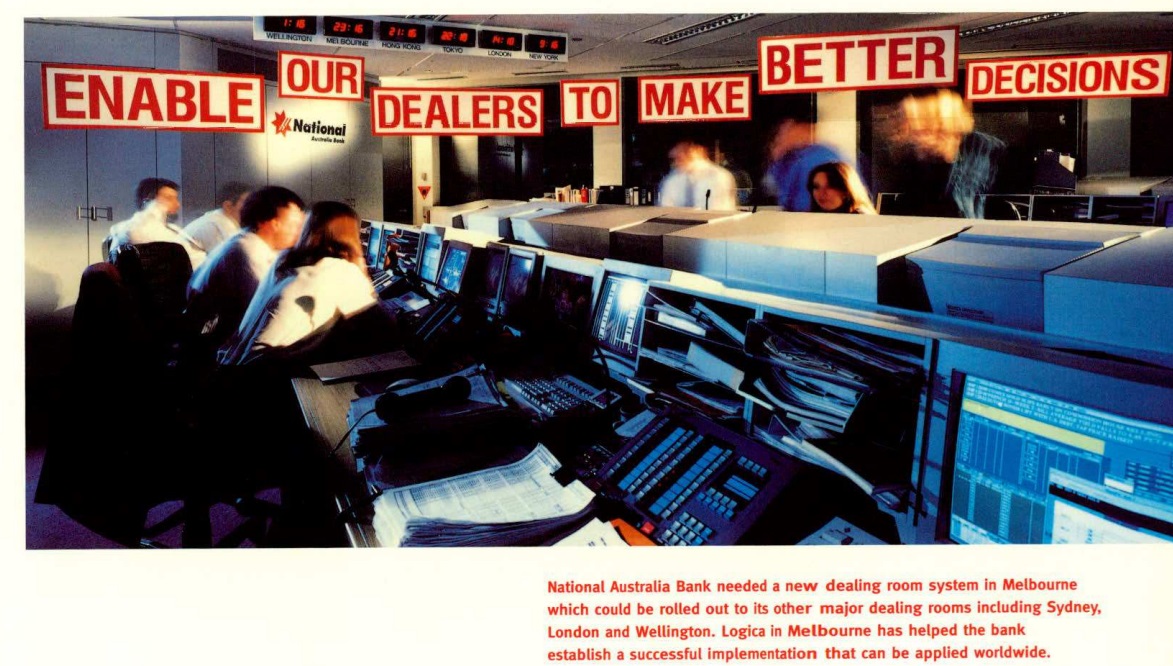IT company Logica was founded in 1969 by a group of colleagues working in London for USA computer sciences company Scicon.
Their first office was at the Camden home of Philip Hughes, where he and co-founder Len Taylor were soon joined by John McNeil, Pat Coen, Steve Feldman and two of their secretaries from Scicon.
To get started, Philip approached a selection of British companies for financial backing with no success, but found that American companies understood what they were trying to achieve. They were first funded by LA based firm Planning Research Corporation. Len Taylor’s talents lay in management and he became Managing Director.
What had gripped me in the last two years was the idea of computer communications, time-sharing, remote computing, and it was in that general area of what was then called ‘scientific computing’ I wanted to start a company. I talked to Len Taylor, who was, effectively my partner in Scicon, and said, ‘Would you be interested?’ … And he immediately said, ‘Yes!’
Pat Coen led operational research. Pat’s ability to do economic model forecasting meant that early on in its development Logica became the consultants for the Bank of England, quite an accolade in the sector. John McNeil’s strengths lay in marketing and he created a distinctive brand. He got the designer for Logica’s iconic logo and organised the annual reports which Logica published from the beginning, (even though they were not a public company yet), in English, Dutch and French.

Logica had a clear philosophy and look from the start. It aimed to be different from its competitors by being scientifically based, rather than solely offering data processing services. It offered a new concept called ‘turnkey systems’ supplying hardware and software in answer to a problem. They also wanted to use the new minicomputer produced by company Digital Equipment (DEC) rather than relying on mainframes. For its workforce, Logica recruited graduates onto a graduate scheme, who came to call themselves ‘LogiBods’. Perhaps unsurprisingly, a number of them became significant figures in the IT industry and are AIT interviewees.

Logica’s first job came via Philip’s secretary, doing the management accounts and planning for architects BDP. The next job was designing the national vehicle and driving licence system at the Swansea Driver and Vehicle Licensing Centre (now known as the DVLA) in Wales. In 1971 Logica won the contract to design the gas control system for the UK’s National Grid and in 1973 the SWIFT system for international money transfers.
In his oral history interview, Philip Hughes credits these early successes to the talent of the people in the company and Logica’s specialism in communications and computing – a new concept in the sector at that time that attracted like-minded organisations.
We had specialised on communications and computing together, which very few people had … Now, once you get clients who are interested in using these so-called minicomputers, which were very powerful in that field, then you naturally turn to people who know how to use them, and that was really what we did. So we could bid for these huge network jobs, often in competition with computer manufacturers, and we won them.
By 1973 Logica had achieved a £1,000,000 turnover and opened its first international office in the Netherlands. It had a partnership with Paris based firm SESA to bid for European projects. As a result, Logica were involved with the European Informatics Network, a multinational packet switching network, a forerunner of the internet.
Logica had more firsts to its name. Their work on the very first packet switching networks included the first transatlantic packet switching network for a hotel booking system, as well as the European one mentioned previously. In 1975 for company Unilever, Logica opened the first electronic typing pool – one of the first word processing systems in the world, VTS. During this period, other British computing companies were being bought out by other companies, but Logica remained.

In 1983 Logica became a public company, allowing it to expand and buy other companies around the world. Examples of contracts in the 1980s included CHAPS, the automated bank clearing system for UK banks, and BT’s customer services system BT/CSS. The automated ticketing system for the London Underground and for generating premium bond numbers (ERNIE) followed in 1987 and 1988. In 1990 Logica developed British Airways’ computer systems and sold these to other companies.
By the early 1990s the founders had stepped down and new direction was needed. Martin Read, previously from GEC and Marconi, took over in 1993. About this, he said in his interview:
Logica was an amazing company from a technology point of view. You looked at some of the things it had done. I mean it had put the first CHAPS system in, for example, it did satellite systems. You know, it did some seriously intellectually challenging stuff. So I sort of felt, you know, if there’s that sort of an asset, one ought to be able to make money out of it.
His tenure was a change in direction for Logica. The company had gained a very academic reputation with its focus on solving difficult problems then moving on rather than repeating the work elsewhere and making a profit. Martin Read’s changes made value for money for customers and shareholders a priority. Changes in philosophy meant most of the Executive Directors on the board had left by 1995. Logica continued to expand in both size and share price. By 1999 it entered the FTSE 100.

In 2002 Logica merged with consulting firm CMG, becoming LogicaCMG. Their work included the software that powered the Beagle 2 Spacecraft, the Crown Prosecution Service’s case management system, work on the Police’s payroll and pensions system and outsourcing Transport for London’s IT services. Logica embarked upon acquiring European technology companies including Portugal’s Edinfor and French firm Unilog. Acquisition of Irish text messaging firm Aldiscon in 1996 meant Logica got in on the text messaging boom early on. However, a profit warning was issued for Logica in 2007 and Martin Read was forced to step down.
Andy Green became Logica’s final CEO in 2008. Logica dropped the ‘CMG’ from its name and Andy concentrated on bringing the disparate parts of the company together:
It was still really operating as a series of independent operations… We did a really interesting cultural exercise across boundaries, pulling all that together
Restructuring followed and some of its activities were moved offshore. However the eurozone debt crisis in 2009 affected Logica’s profits, and further job cuts to save money were announced in 2011. In 2012 Canada’s IT and software development company CGI agreed to buy Logica in a £1.7 billion cash deal, the company became subsumed and the brand name disappeared from use. This was the end of an iconic UK IT firm and brand.
Further information
- You can find all our interviews with people who worked with, or for Logica by clicking here.